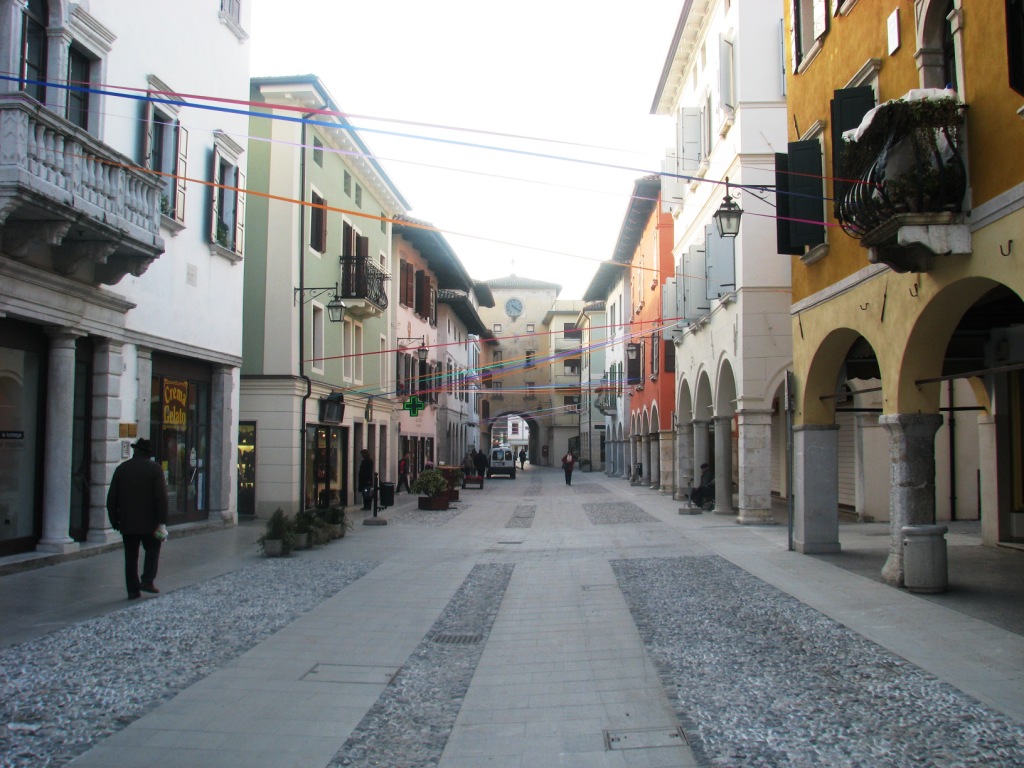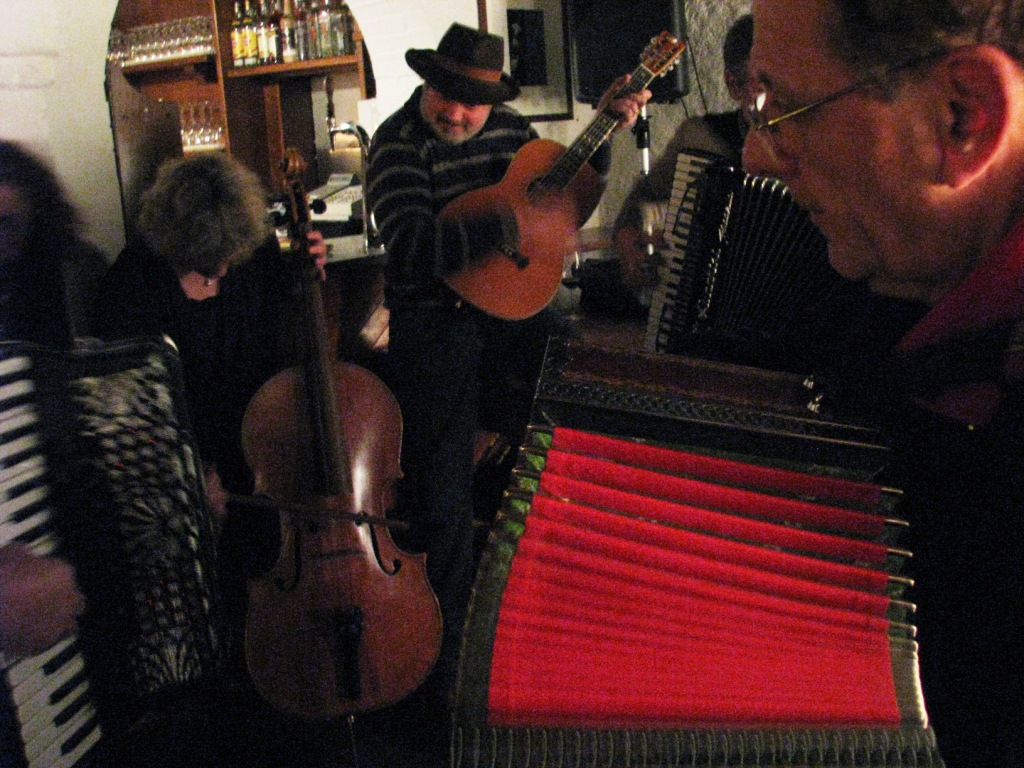Colourful tradition
The first step of the journey is Spilimbergo (Friuli) with the Friulian music. (Spilimberc in Friulian, has 12.000 inhabitants and it is located on the right side of the Tagliamento river). Andrea Del Favero was waiting for me, he is a great instrumentalist of the group "La sedon Salvadie" pioneers of the regional folk  revival and director of Folkest, one of the most famous international festival of folk music. Besides having these artistic skills, Andrea has one characteristics that is really useful for me at the moment: he is a camper driver! This detail gives me a lot of comfort and security considering the fact that I put for the first time my inexperienced hands on the wheel of a camper only one day before the departure. Another great coincidence: at the very centre of Spilimbergo there is an equipped parking area that supplies to me the power to write this article.
revival and director of Folkest, one of the most famous international festival of folk music. Besides having these artistic skills, Andrea has one characteristics that is really useful for me at the moment: he is a camper driver! This detail gives me a lot of comfort and security considering the fact that I put for the first time my inexperienced hands on the wheel of a camper only one day before the departure. Another great coincidence: at the very centre of Spilimbergo there is an equipped parking area that supplies to me the power to write this article.
I arrive in Spilimbergo when it is getting dark. I park the camper in the main square against any rule and in a short time I reach Andrea. From time to time he has the nice habit of gathering talented musicians and friends at the tavern “La Torre Orientale" in the center of Spilimbergo, to spend all night long playing together. This time "The Way of Music" will also be present.
The location is still empty and we take the opportunity to enjoy the culinary delights of the place. In the meantime musicians of all ages and from different parts of Friuli and
Istria arrive and join our table. They start telling a series of jokes in friulian dialect that I don’t understand. I have driven for only 120 km and I don’t understand the language of the place I reached, It's fantastic, I fell far from home, already underway.
When the “dose” of musicians reaches the appropriate level, we move into the tavern and the music begins with an incredible immediacy.
They will play until late in the night in this atmosphere of old days and different musical worlds like Pizziche Salentine,song writer's songs or music with Irish influences.There are also some "infiltrated" instruments that don’t belong to the musical tradition of Friuli. Among all these colours, the Friulian tradition is present in the texts of the songs and the melodies, then what this  musicians create and play is the result of personal interpretations, shared, accepted and re-interpreted. Tonight no one performs, there is not an audience, there are no musicians but people feeling and living the music, there are no genres nor categories. In the tavern everybody is playing for everybody, including themselves. The instruments are handled as exchange objects and passed from hand to hand. Tired to shoot I also start playing the guitar and then change to a darbuka (Egyptian percussion).
musicians create and play is the result of personal interpretations, shared, accepted and re-interpreted. Tonight no one performs, there is not an audience, there are no musicians but people feeling and living the music, there are no genres nor categories. In the tavern everybody is playing for everybody, including themselves. The instruments are handled as exchange objects and passed from hand to hand. Tired to shoot I also start playing the guitar and then change to a darbuka (Egyptian percussion).
At a certain moment of the evening a white-haired gentleman grabs me. His name is Angelico Piva, leader of the "Bintars," a dance group like oberkrainer the first in Friuli. He invites other two musicians playing accordion and guitar to reach him in another room and tells me to follow them. They want me to listen the real music of Friuli. Unfortunately the sounds clash because the two rooms are too close but, in the next days, they will give me the opportunity to enjoy the oldschool of Friuli musical tradition.
Notes: the term "Oberkrainer" literally means "Above Kranj" which is a city in the ex Yugoslavia. At the beginning this musicl genre used to be plaid in the area of this city and in the north. Then after the war, especially thanks to the musician Slavko Avsenik, it has been spreaded into other areas including the north of Italy. This music became a “market” phenomenon by consolidating the formation of accordion, guitar, trumpet, clarinet and small trombone. This repertoire, reach in traditional melodies, cannot be considered an authentic tradition repertoire of Friuli.